 Welcome to the third episode of Season One of Best Pictures from the Outside In. If you're just joining us—don't worry, you'll still count later on as a "vintage" fan from the infancy of this series!—Goatdog and Nathaniel and I are surveying Oscar's top prizewinners from inception forward and from this year backwards, leading to all kinds of bonkers juxtapositions... though episodes One and Two have convinced us, and hopefully you, that these arbitrary pairings can lead to fresh, lively takes on the movies. This week, we bunk up with All Quiet on the Western Front, a prestige adaptation of Erich Maria Remarque's novel about young German soldiers working hard to stay alive in World War I, which was the Academy's favorite movie released between August 1, 1929, and July 31, 1930. We also run into Crash, Oscar's anointee from 2005, tracking 20+ characters through the mean, bile-spewing streets of modern LA. If these two films were mashed into one, you might call it...
Welcome to the third episode of Season One of Best Pictures from the Outside In. If you're just joining us—don't worry, you'll still count later on as a "vintage" fan from the infancy of this series!—Goatdog and Nathaniel and I are surveying Oscar's top prizewinners from inception forward and from this year backwards, leading to all kinds of bonkers juxtapositions... though episodes One and Two have convinced us, and hopefully you, that these arbitrary pairings can lead to fresh, lively takes on the movies. This week, we bunk up with All Quiet on the Western Front, a prestige adaptation of Erich Maria Remarque's novel about young German soldiers working hard to stay alive in World War I, which was the Academy's favorite movie released between August 1, 1929, and July 31, 1930. We also run into Crash, Oscar's anointee from 2005, tracking 20+ characters through the mean, bile-spewing streets of modern LA. If these two films were mashed into one, you might call it... Nick:
Nick: So, this week the inevitable finally unfolds, twice over. On the one hand, for the first time in this series, Oscar ignites a major uproar with its choice of the top prizewinner. Even more typically of AMPAS, and at both ends of our historical double-helix, Best Picture goes to a movie that huffs and puffs along with a Worthy Message. Without dodging the issue completely, I'm inclined to steer clear of the whole
Crash/
Brokeback passion play, partially because it was all so recent and so heated that we hardly need another rehearsal: you all know how you feel, and so do we. Partially because I'm the host, and I wouldn't have voted for either one of those movies; given Oscar's choices, I was
all about Capote and
Munich that year. And partially because our goal is to reassess the movies, not the conditions or controversies that surrounded their victories.
So, with that caveat loosely in place - the First Amendment does, after all, still prevail on this blog - I think we might begin more fruitfully with the moralizing aims of
All Quiet on the Western Front (war is hell, and the homefront has no idea!) and of
Crash (contemporary racism is as horrible as it is pervasive, and you, the viewers, have no idea!). Neither film leaves any doubt about its motivating ideology, although they position themselves a little differently with regard to their didacticism.
All Quiet... is brazenly anti-war, as expressed through its stomach-turning battlefield scenes as well as its dialogues and voiceovers—but the film is also intent on making huge forward leaps in realistic "style" and in technical sophistication. Considering how alert we were
last week to
The Broadway Melody's crude fascination with its own soundtrack, it's amazing that
All Quiet...—so much more ambitious in scope, depth, sonic density, and especially camera movement—is only a year older. Director
Lewis Milestone makes a huge case for
All Quiet... as groundbreaking cinema, which
Paul Haggis all but refuses to do with
Crash. That film is formally and technically modest, almost TV-like, as though this in itself will make the movie's elaborately contrived dialogue and dramaturgy more "believable."
So, while we grab our first round of cocktails, I have some questions: did you guys feel that the grand scale and artistic ambition of
All Quiet... or the almost anti-cinema aesthetics of
Crash made you take their implied "messages" more to heart, or less so? What IS the message of
Crash, anyway, and does the movie have an artistic identity apart from its rhetorical points? And if I can ask a more pointed question than we sometimes have in beginning these chats, is there a single scene or moment in either film that sums up how you think the movie works, or how you feel
about the movie? (I'll keep quiet about my answers till after I've opened the floor.)
Go to it, you crazy lily-white crackers!
 Nathaniel:
Nathaniel: I love that it took us until episode 3 to get to the Worthy Message film... although I fear we shan't ever be granted a two week leave again. We'll be abandoned on the front lines from here on out.
I'm glad you mentioned the anti-cinema aesthetic of
Crash. It's
one of the reasons I have a problem with it. I'm not predisposed to hating anti-cinema cinema but I almost never take it as seriously as the Movie-Movie. Even in cases where I like the former kind more than in this case, I can never get truly passionate about them. I think it's charitable that you view this deficiency as an aesthetic choice... I'm inclined to view such films as merely lacking in visual creativity or technical skill. So my answer to the first question is that I can't take
Crash's message as seriously as
All Quiet's, even before we get to the other problem:
Racism is Wrong! is hypocritical in delivery. One of the things I respect a great deal about
War is Wrong! is that its message is not compromised. It doesn't wallow in the thrills of the battle and victories like many supposed anti-war movies do. The
War is Wrong! soldiers actually look distraught whenever they win OR lose... which I think marks a brave commitment to the Message first and foremost. It's not interested in having and eating its cake. Meanwhile, over in
Racism is Wrong!, the players and audience seem to be blatantly pandered too whenever the occasion permits. So often the movie seems to be saying, "It's wrong but we all do it—and that doesn't make us bad people!" I think we need a YouTube mashup of
Crash scenes set to
Avenue Q's
"Everyone's a Little Bit Racist", pronto. The movie is similarly "Oops, my bad!"-forgiving, if much less witty in the delivery.

When thinking on
Crash, it's not a scene but a line that careens into me. It's the often lampooned but interesting (to me at least) moment when whitey
Sandra Bullock has her inchoate breakdown: "I'm angry all the time and I don't know why." I much prefer the movie when its notions of widespread psychosocial sickness are vaguely expressed. I think
Crash is more effective in these fuzzier moments than when it hits any nail (black, white, brown or yellow) on the head. We, as humans, may like easy explanations and diagnosis but that doesn't mean they're good for us. Easy categorizations are part of the problem. If I have to choose a scene I'm going with the bookend of
Michael Peña and the bedtime story of the magic cape. The first scene is a beauty since Peña is a sympathetic and fine actor. [Note: producer/star
Don Cheadle ventures on the DVD commentary that Peña's performance is "arguably the best thing in the movie."] But the payoff, potent as it may be, is manipulative. It works but the aftertaste is gross. That's how
Crash plays for me throughout. I think it's well meaning. I really do. It's the delivery that's the real problem.
Goatdog: The scene from
Crash that best illustrates why I think that movie is a train wreck is Sandra Bullock's post-sprain embrace with her sometimes helpmeet, sometimes whipping Hispanic, Maria (played by
Yomi Perry).
Crash structures itself around a series of accidents—of wrong-place-wrong-time meetings, of "there are only five cops on active duty in LA" coincidences, and of genuine accidents proving that nothing is more unsafe than the home except the outside. These accidents both (1) provide fodder for people to dig out their Racist Thesaurus and Old-Timey Book of Creaky Insults, and (2) provide opportunities to realize the errors of their ways. So Sandra takes a tumble, and none of her self-obsessed (presumably white) friends will help her, but her savior, Saint Maria, rescues her from her beige cocoon, takes her to the hospital, and brings her tea.

How lovely! How loyal! You know, the Maria whom Bullock
pays to help out, who would likely
get fired if she did not help out. In this grand rapprochement between representatives of the Unaware Racist White Union and the Long-Suffering Hispanic Union, Paul Haggis doesn't see fit to give her a
single closeup without Bullock, and after Bullock makes her silly declaration, doesn't show her face
at all. By that time, she's a prop, not a person. What. the. fuck? Is he making some subversive statement about how Bullock's self-deluded epiphany isn't real? If so, why not at least one little closeup of Maria rolling her eyes? (We all know Ang Lee would have given Perry her own closeup.) It doesn't matter to Haggis what Maria thinks of this, because he's already dealt with what Hispanics think about race in his Michael Peña storyline. This, like
Matt Dillon's rapprochement with
Thandie Newton in the flames of the burning SUV, strikes me as completely false in so many ways: it illuminates the silliness of the film's reductively interlocking circle of characters, it proudly brandishes the film's reductive view of how people deal with race every day, and it posits a reductive solution in which we only have to viciously stub our toes while running for the teapot in order to have a grand epiphany about how we're racists but we're not bad people and there's hope for us yet.
Which brings me to
All Quiet on the Western Front. You know, because it stands at the opposite pole from
Crash's technical, moral, and thematic deficiencies. The one scene I'd choose as being emblematic of everything it does right with its technique and message is the recruits' first outing with the lovably ugly Katczinsky (
Louis Wolheim) to lay barbed wire. What struck me was the screaming. When people are shot or struck by shrapnel in this film, they don't fall over on their side and die quietly: they scream, they run around, they tear at their faces, they cry, they're in agony, and their friends have to watch because there's nothing else they can do. When they try to help, it's useless—heroism is useless. Like Nathaniel said, it never deviates from this message, not for a second. I don't think audiences had seen a film deal with war this way before (because the sound is so important to the effectiveness), and it would be another 15 or so years before a film dealt with war this honestly again.

The bumper crop of early-30s antiwar films this one kicked off (many of them written by
John Monk Saunders, who wrote
Wings) weren't this realistic, and from what I remember of the early WW2 films that dealt with combat, they chose the "slight grimace, then fall over quietly" type of battle death. This scene also plays up Milestone's mastery of all the tools available to him as a filmmaker, and at times it's almost as if the creaky-early-talkie period didn't exist, that he was able to meld some of the impeccable technique of the late silents with all the possibilities of sound without losing anything from either side of that formerly impenetrable boundary between sound and silent. It's a legitimately great movie, one of the ten best winners of all time.
Nick: I'm glad you highlight a failure of
Crash's editing, Mike, because I do find it galling that the two specific crafts for which
Crash won Oscars—the writing and the cutting—are the two things it misjudges more often than anything else. This might seem like nitpicking, but for me a defining moment in the movie is when Don Cheadle's character barks at his mother over the phone that he's "having sex with a white woman," but rather than move closer to
Jennifer Esposito's reaction or even hold the full shot where they are lying on the bed in real time, editor
Hughes Winborne actually cuts to an arbitrarily different shot as Esposito gets off the bed. This means we don't experience the moment as the character does, in any way; instead, the screenplay digs in its heels for another righteous monologue where a character describes what is structurally wrong with what someone else just did/said. The coarseness of the editing here is botchy in exactly the same way (for me) as the moment you describe, Mike, and works against the film's occasional strength (I agree with Nathaniel here) at showcasing human behavior and vulnerability without always underlining what
exactly is most troubling or wrong with the person or moment or event we've just witnessed.
 | + |  | = | 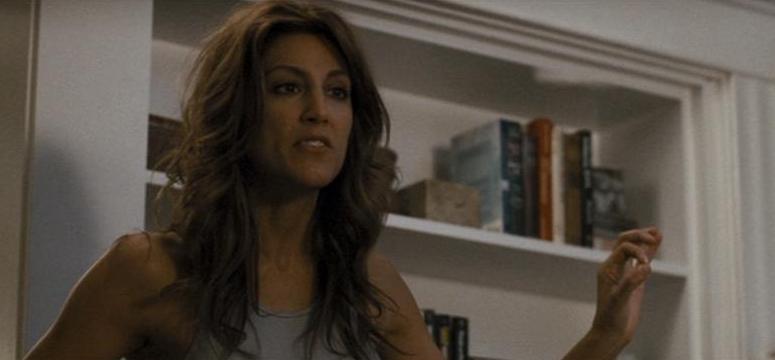 |
| Offending Dialogue + Anti-Reaction Shot = Freestanding Lecture |
That said, I don't always think
Crash is one-dimensional or totally overt. I don't experience the Matt Dillon/Thandie Newton scene on the highway as a "rapprochement," for example, because I find both of their affects—hers especially, when she subtly shakes her head at the end of the scene—interestingly inscrutable. Some of the writing works, both in the rare understated moment ("You embarrass me") and even some of the florid ones, if you take the movie as a Eugene O'Neill-ish exercise in forcing characters to speak their subconscious thoughts aloud, rather than a snapshot of alleged "reality." And the actors frequently save the movie, or parts of the movie:
Terrence Howard's painful apologies to the police,
Shaun Toub's and Michael Peña's fight over the door and the lock,
Loretta Devine calling office security but then holding them off to hear Matt Dillon out. Strong scenes, sharply played. I do have to give
Crash credit for being punchy and vivid and occasionally quite bracing, for all the other times when it's tripping over itself.
But I'm short-shrifting
All Quiet on the Western Front! Ditto on its conviction that war really is ghastly and intolerable. I also love the palpable violence of some of the social encounters (Himmelstoss the mailman, converted overnight into a defensive and hostile automaton) and even the camera movements (tracking back as the soldiers rush into their barracks for the first time, underscoring their excitement but also sort of retreating from their painful naïveté). I agree it's one of the best winners Oscar ever chose... but are we going too easy on it? Does it have a
Saving Private Ryan-ish problem of getting weirdly talky in the second half? Compared to something as visually and cinematically robust as that horrible scene where the bunker caves in on itself and Franz Kemmerich (
Ben Alexander) goes stir-crazy inside, the scenes where the soldiers discuss what war "really is" by the side of the river or where
Lew Ayres wrestles internally with his own guilt at killing an enemy feel like a different and
slightly lesser movie to me.
Nathaniel: I do think
All Quiet gets talky to its (very slight) detriment but it was pointedly moving all the same. The film works best when it's visually conveying the message... like that simple but effective journey of the coveted bad-luck charm boots, or the absolutely stunning ending, which merely recycles a shot from earlier in the film but double exposes it to remind you of the cumulative losses of the movie. It's a gut punch but a humane one, I think. I was also, like Nick, amazed at its technical control. This is only a couple of years into sound filmmaking? They learned very very quickly in Hollywood. Or at least Lewis Milestone did.
But here's where I get all Lew Ayres post-war disillusioned on ya. Perhaps it's distasteful to be this cynical but I've seen too much of the annual
Western Fronting. Western as in Hollywood, California. Don't these two movies paired (and other wins too) suggest that the technical mastery and aesthetic sensitivity of a film like
All Quiet on the Western Front are rather irrelevant to its triumph on Oscar night. Doesn't The Message film always win because of group sympathies for The Message?
 Goatdog:
Goatdog: I agree that the talkiness of a few of the late scenes detracts from
All Quiet, but only a little: yeah, the "let's put all the leaders in a circle and let them fight it out" bit is belabored, but it's such a small part of the film. By the time of Lew's alienating trip back home, his return to discover that just about everybody he knows is dead, his tragic reunion with Wolheim, and that ending, I had forgotten my issues with those few too-talky scenes. I can't put Lew's soliloquy to his dead French foxhole-mate in the same category, because even despite the sometimes creaky dialogue, it's one of the most horrific scenes in the movie, one that drives home the general awfulness of everything Lew's been through. That dead guy sitting there with that half-smirk on his face... shudder. Plus, I just took a break from viewing next week's offering, and my god,
All Quiet on the Western Front is a miracle, hallelujah! Although healing the problems of the other talkies around it is not part of its legitimate claim for canonization.

But with
Crash, it's the other way around: the general morass of the hapless shooting and editing (my favorite [read, least favorite] being Terrence Howard and Thandie Newton fighting in their apartment, and Haggis deciding to shoot it through the patio doors because he's seen better filmmakers do that, but doesn't stop to wonder why it might work in some cases but not in others), the general preachiness and obviousness of the dialogue and scene construction, etc., make the good moments—I'll admit that there are a few, some of which are really powerful—seem to disappear.
What has Oscar done to make you so cynical, Nathaniel? I'd like to imagine that voters are familiar with their craft and they recognize outstanding work when they see it. That's the way it works, right? But this pairing (and so many other "message" winners, good and bad) (and, for that matter, their repeated demonstrations of their lack of familiarity with their craft) could suggest that they're blind to anything but the message, at least when they go for a message film. That's a therapy session I'd love to eavesdrop on. But at least sometimes, as we saw last week, they can look past clumsy sermonizing (like
Babel) and go for something that seizes the brass ring through sheer, ballsy technique. Looking through the list of films we'll be addressing in the coming months, we'll be wondering a lot about what specific motives led to the choice Oscar made in a given year, even when, as here, they made the right choice. Sometimes it's a strong message or phenomenal technique. Or vast, overwhelming scale. Or a comeback vehicle for a director who doesn't get enough credit. Basically, Oscar needs something huge and noticeable to pin its medal to. It might be fun at the end to try to divide the winners into categories: technique, message, scale, comeback. And Ernest Borgnine.
Reader: Don't front. Don't be all quiet. Do you agree with us that the Milestone film is a milestone? Are you angry at Crash all the time, and do you know why? Though Oscar may have said it all with that interpretive dance of "In the Deep" before a blazing car, leave us your impressions in the form of a Comment...
 Stats: All Quiet on the Western Front
Stats: All Quiet on the Western Front was nominated for four Oscars, winning Best Picture and Best Director.
Crash was nominated for six, winning Best Original Screenplay and Best Film Editing in addition to Best Picture.
Tags:Currently: Goatdog's and
Nathaniel's posts on this week's films
Previously: ep.1:
Wings & No Country; ep.2:
Broadway Melody & DepartedLabels: 1930s, Awards 2005, Best Picture, Blog Buddies, Soapbox


 Nick's Flick Picks: The Blog
Nick's Flick Picks: The Blog

 Thanks to everyone who's been so patient with the Great Blogging Drought of 2011. It's a huge year for me in terms of writing deadlines and professional obligations, which is the only reason I've been so scarce. Believe me, if I had time to write about the rapturous Tree of Life, I would! Even I don't think
Thanks to everyone who's been so patient with the Great Blogging Drought of 2011. It's a huge year for me in terms of writing deadlines and professional obligations, which is the only reason I've been so scarce. Believe me, if I had time to write about the rapturous Tree of Life, I would! Even I don't think  I was chuffed to get an e-mail today from Aghion, whom I do not know, informing me about a historical and cultural center that she and a colleague are trying to open in Rwanda. Many of us who hear the name of that country still think immediately of genocide, although I'm happy to say that I now have a friend living in Kigali whose reports are giving such a different, richer sense of the nation. Still, even Rwandans have painfully limited access to their own audiovisual history, so Anne Aghion and Assumpta Mugiraneza are working hard to open a Media Archive called
I was chuffed to get an e-mail today from Aghion, whom I do not know, informing me about a historical and cultural center that she and a colleague are trying to open in Rwanda. Many of us who hear the name of that country still think immediately of genocide, although I'm happy to say that I now have a friend living in Kigali whose reports are giving such a different, richer sense of the nation. Still, even Rwandans have painfully limited access to their own audiovisual history, so Anne Aghion and Assumpta Mugiraneza are working hard to open a Media Archive called  If you follow this site at all, you might know that I've worked myself into a tiny lather in recent years – drawing bubbles from my admittedly small soapbox – as both an incorrigible devotee of the Oscars and a somewhat cranky critic of how long, expensive, and over-crowded with nuggets and chatter the so-called "awards season" (or, worse, the "campaign season") has become. It's hard enough when so many of the wrong films seem either pre-targeted for consideration or disappointingly excluded from it. I find my Oscar addictions, which are no one's fault but my own, prompting me to think and write more about movies I don't really care about, just because they're likely to be nominated, than about movies for which I might actually have a thought-out, passionate, more valuable critique to put forward.
If you follow this site at all, you might know that I've worked myself into a tiny lather in recent years – drawing bubbles from my admittedly small soapbox – as both an incorrigible devotee of the Oscars and a somewhat cranky critic of how long, expensive, and over-crowded with nuggets and chatter the so-called "awards season" (or, worse, the "campaign season") has become. It's hard enough when so many of the wrong films seem either pre-targeted for consideration or disappointingly excluded from it. I find my Oscar addictions, which are no one's fault but my own, prompting me to think and write more about movies I don't really care about, just because they're likely to be nominated, than about movies for which I might actually have a thought-out, passionate, more valuable critique to put forward.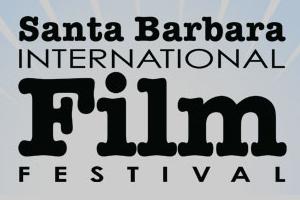 Beyond forming these aggravated opinions in recent years, I have jumped to my own conclusions about what is or isn't a "legitimate" event and what seems, by contrast, like a pure publicist's coup, with little to teach anyone about filmmaking. I haven't been consistent or very well-informed in arriving at these knee-jerk opinions, so I usually keep them to myself. Yesterday, though, in a
Beyond forming these aggravated opinions in recent years, I have jumped to my own conclusions about what is or isn't a "legitimate" event and what seems, by contrast, like a pure publicist's coup, with little to teach anyone about filmmaking. I haven't been consistent or very well-informed in arriving at these knee-jerk opinions, so I usually keep them to myself. Yesterday, though, in a  I'm not even sure if "Spirit Day" is the official name for today's outpouring of mourning for the five recent and highly publicized suicides by LGBT youth, all of them tormented by homophobic bullying and very public persecution. But somehow, in the lavender ether of the internet, I have gleaned that we are all meant to wear purple today, and tint our cyberimages purple, to let people know that we care. This, I am only too happy to do, but since fiddling with the "Color Balance" feature on a piece of graphics software so old you would laugh if I named it doesn't quite feel like enough, allow me just to add –
I'm not even sure if "Spirit Day" is the official name for today's outpouring of mourning for the five recent and highly publicized suicides by LGBT youth, all of them tormented by homophobic bullying and very public persecution. But somehow, in the lavender ether of the internet, I have gleaned that we are all meant to wear purple today, and tint our cyberimages purple, to let people know that we care. This, I am only too happy to do, but since fiddling with the "Color Balance" feature on a piece of graphics software so old you would laugh if I named it doesn't quite feel like enough, allow me just to add – I'm feeling perturbed by an article that Tom Shone has recently published in slightly different versions on
I'm feeling perturbed by an article that Tom Shone has recently published in slightly different versions on 

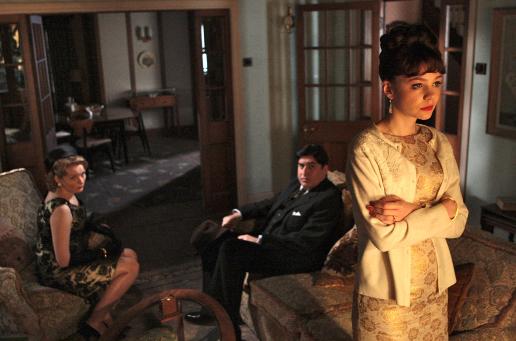
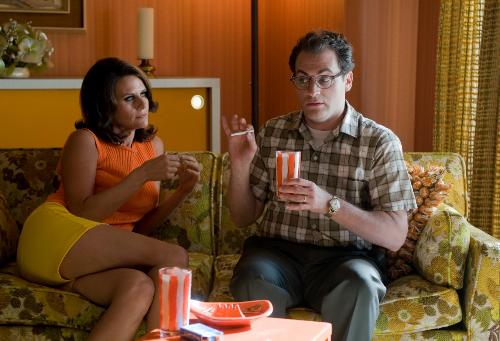

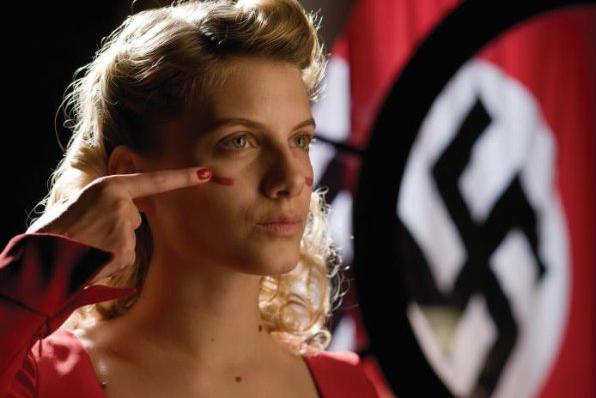 ...and though I have a lot else to get done this weekend and can't afford the time to write or deliver a finished screed, I am finding myself too upset but also too gripped by my
...and though I have a lot else to get done this weekend and can't afford the time to write or deliver a finished screed, I am finding myself too upset but also too gripped by my  ...about the
...about the 
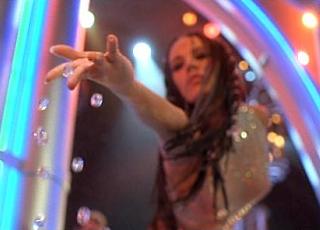


 No, seriously—just for one day, let me be Frank Rich. Or at least let him hear my loud huzzah about
No, seriously—just for one day, let me be Frank Rich. Or at least let him hear my loud huzzah about  Welcome to the third episode of Season One of
Welcome to the third episode of Season One of 

























